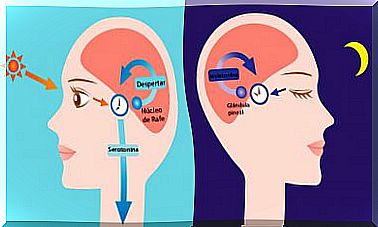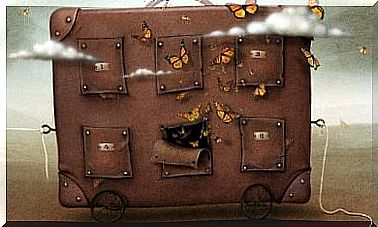What Is Learned Helplessness?
Learned helplessness is a response of passivity and submission to situations that are usually unpleasant. In this way, people who suffer from it have no intention of eradicating stimuli that are unpleasant.
In general, the condition appears after having lived a traumatic experience in which failed actions were taken to avoid suffering. Thus, the individual understands that there is nothing useful he can do to stop painful situations.
Definition of learned helplessness
According to the American Psychological Association (APA), learned helplessness is a phenomenon that originates from repeated exposure to stressors. They are uncontrollable and make people not use options available in their personality to control the facts.
Because of this, they learn that they lack control over what happens, that is, over environmental processes. In the medium term, learning destroys the motivation to make changes.
In other words, it is a psychological condition that leads to the inability to react to situations that cause suffering. This occurs as a consequence of the execution of failed actions in the face of unpleasant events in the past. Thus, one learns to tolerate suffering and it is believed that there is nothing that can be done to avoid unpleasant stimuli.

Causes of learned helplessness
All causes of learned helplessness are related to a bias that leads people to believe that they have no control over life events. This contributes to a lack of analysis of the possible consequences of certain situations. They believe that their destiny is already defined and they cannot do anything to change it.
Below are the most common causes of this condition.
Traumatic experiences in childhood
One of the factors that determines the development of this psychological state is the experience of the first years of life. If the person had unpleasant experiences during this stage and did not receive any kind of containment or positive response, it is likely that in adulthood they will develop a position of submission in the face of similar circumstances.
Submissive and passive role education
The education received during childhood is another factor that influences the establishment of this condition. Since if social roles of passivity and dependence are promoted in certain situations, then the vulnerability of presenting helplessness in the future increases.
For their part, messages received in childhood play an important role in establishing inaction. For example, if a child is surrounded by people who constantly tell him that he is not capable or that he does not know, then he can evolve into an adulthood in which he thinks he is powerless.
Over-controlled households
There are excessively controlling households. Children who live in an environment where everything that happens around them is controlled and deprives them of experimenting and learning the consequences of their actions are more vulnerable.
Feelings of guilt
On the other hand, there are internal factors, such as responsibility or guilt, that influence the development of helplessness. That is, the person feels guilt for the unpleasant event and begins to believe that he is unable to change or stop any situation that may arise in the future.
In this way, one falls into resignation and justification of attitudes, bringing negative effects to self-esteem and dignity. This may be related to the type of education, capable of enhancing guilt.
Consequences of learned helplessness
Learned helplessness has a negative effect on the following dimensions:
- Motivation: the perception of lack of control generates a decrease in motivation. Therefore, attempts to respond to new situations are reduced.
- Cognition: it is difficult to learn new response patterns that produce positive results. In addition, any problem can be perceived as something normal.
- Emotional: negative emotional states such as depression, anxiety, and frustration are common. There is also a marked lack of self-esteem. This state lasts until the person is able to control the circumstances.
- Physical: among the bodily conditions are eating disorders and alterations in the immune system.
Treatments of learned helplessness
The best way to treat this phenomenon is through therapeutic intervention. This approach is intended to teach the person how to respond to a given situation. According to Vázquez Valverde and Polaino Lorente, the therapeutic approach consists of the following:
- Change the negative attributions that the subject makes of the situations: by performing simple tasks, those that provide positive results after the person has taken some action. He can also be taught that failures are not due to himself.
- Induction of positive feelings: to reinforce self-esteem. In this way, you will feel more capable of being able to intervene in the environment.
For its part, therapeutic intervention may consist of addressing past traumatic events. The goal is that the person can overcome these experiences by giving them a different meaning. This will help you develop more functional and positive responses in future situations.

An acquired problem
As its name suggests, learned helplessness is acquired, it is not born and, in general, it is established from childhood. This condition carries a series of negative effects that harm the well-being of the person, sometimes severely. Therefore, it is important that it be treated.
The best treatment is psychological therapy. Thanks to it, the person will discover that he is in control of his life. Once you are aware, you will experience positive changes on all levels: emotional, physical, and cognitive.









